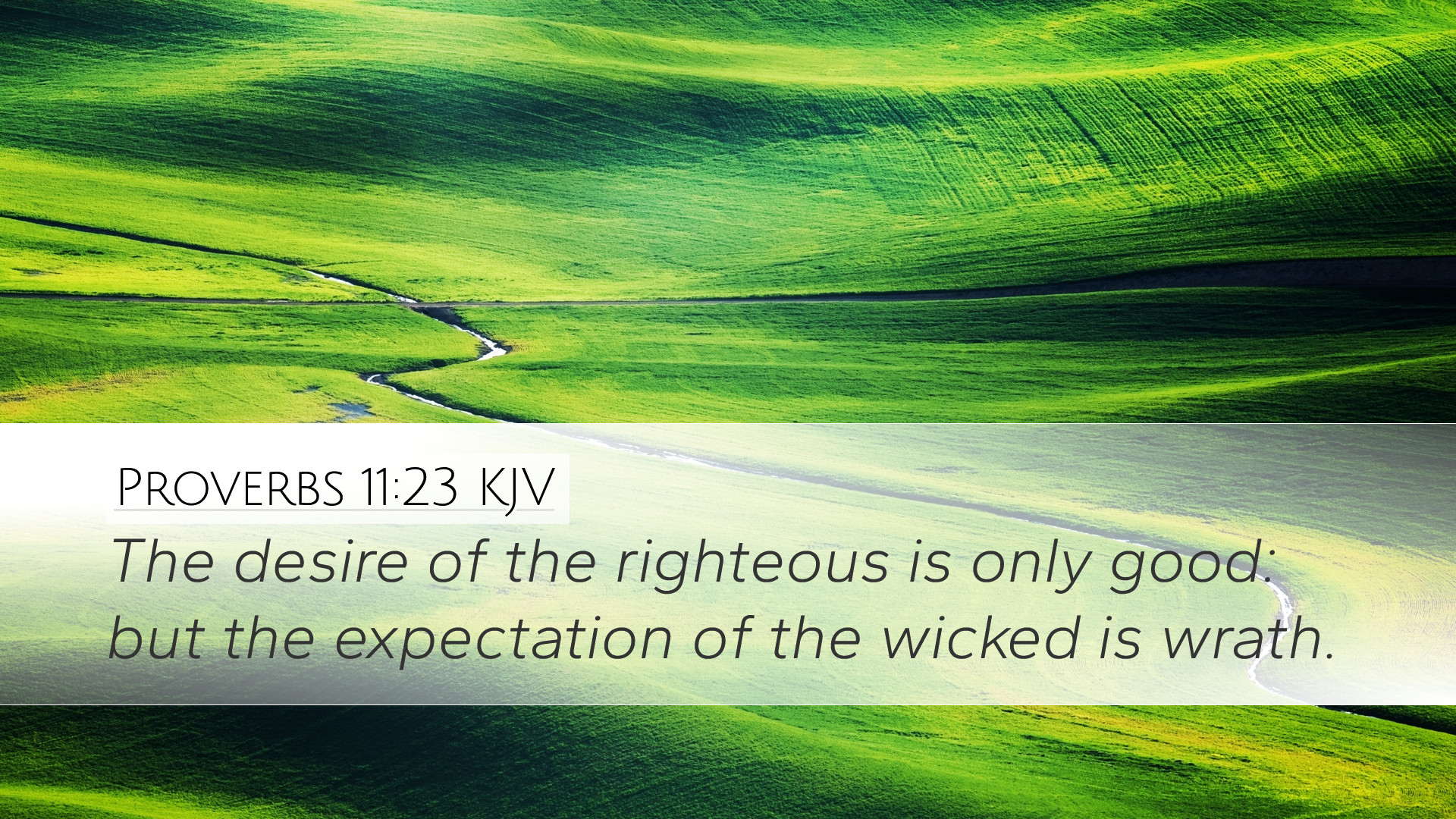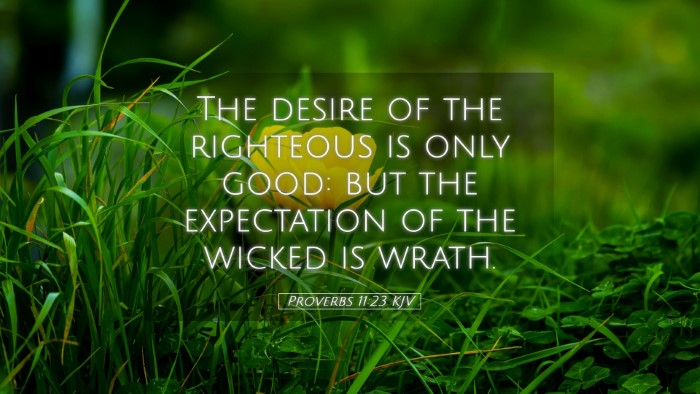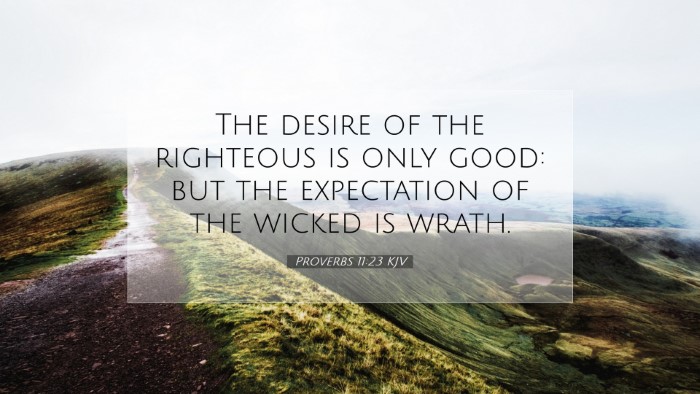Commentary on Proverbs 11:23
Text of the Verse: "The desire of the righteous ends only in good, but the expectation of the wicked in wrath." (Proverbs 11:23, NIV)
Introduction
The book of Proverbs is filled with wisdom literature, providing profound insights into the nature of righteousness and wickedness. Proverbs 11:23 serves as a stark contrast between the destinies of the righteous and the wicked. This commentary delves into the meanings of this verse by synthesizing the thoughts of several respected public domain commentators, including Matthew Henry, Albert Barnes, and Adam Clarke.
Analysis of the Verse
In this verse, we see two distinct paths described: the path of the righteous who long for good outcomes, and the path of the wicked whose expectations lead to judgment. This duality not only reflects the moral fabric of society but also showcases the theological underpinnings of divine justice.
The Desire of the Righteous
Matthew Henry emphasizes that the desires of the righteous are aligned with God's purposes. Their longings are fulfilled positively because they seek not only their own good but the welfare of others.
- Righteous Intentions: The desires of the righteous are described as noble, seeking peace, love, and righteousness.
- Divine Fulfillment: When the righteous desire good, their hopes reflect God's will, thus they experience His blessings.
The Expectation of the Wicked
Albert Barnes interprets the second part of the verse as a warning: the anticipation of the wicked leads ultimately to destruction. His perspective indicates that wicked people often perceive their pursuits as fruitful and advantageous despite the inherent futility.
- Misguided Aspirations: Wickedness blinds individuals to the consequences of their actions.
- Destined Wrath: Barnes suggests that their anticipations often culminate in God's wrath, underscoring the gravity of living outside of divine principles.
Theological Implications
Adam Clarke elaborates on the theological import of this verse, noting that the inevitability of outcomes based on moral character signifies God's justice. The righteous, living in accordance with God's precepts, cultivate a life that bears fruit, whereas the wicked reap the consequences of their choices.
- Divine Justice: Clarke notes that the outcomes depicted in this verse symbolize the broader principle of reaping what one sows.
- Moral Truth: The moral truths in this verse apply universally, indicating the stark contrast between good and evil.
Application for Today’s Believers
The practical implications for today’s pastors, students, and scholars are manifold:
- Encouragement to Righteousness: Individuals are urged to cultivate desires that align with God's will, understanding that true fulfillment comes from righteous living.
- Warning Against Wickedness: There is a need for vigilance against the allure of wickedness, recognizing that such paths lead to destruction.
- Spiritual Reflection: Believers are called to reflect on their desires and hopes—are they aligned with a pursuit of goodness, or are they leading toward personal or communal ruin?
Conclusion
Proverbs 11:23 encapsulates essential truths concerning the outcomes of the righteous versus the wicked. By integrating insights from Matthew Henry, Albert Barnes, and Adam Clarke, we can grasp a deeper understanding of this passage. Believers are encouraged to earnestly seek righteousness, holding fast to the truth that the desire for good aligns with God’s will, producing lasting fruit, while the expectation of the wicked is rooted in vanity and will ultimately lead to judgment.


